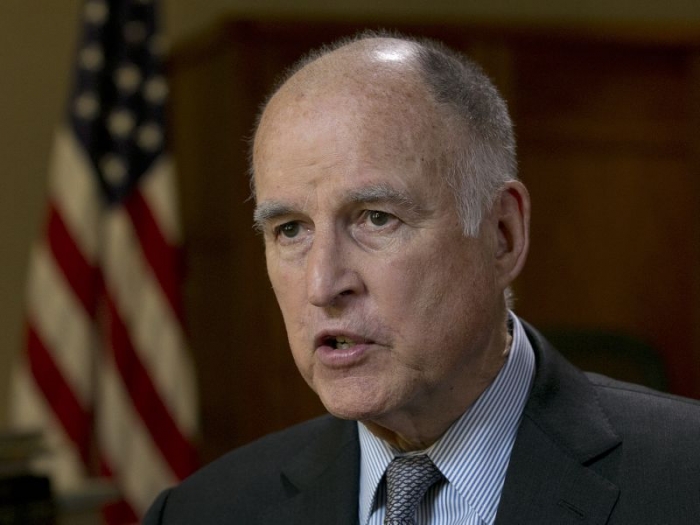You are here
Home 🌿 Recreational Marijuana News 🌿 California Governor, Lawmakers Announce $125B Budget Deal 🌿California Governor, Lawmakers Announce $125B Budget Deal

Gov. Jerry Brown and Democratic legislative leaders said Tuesday they have agreed to a $125 billion budget that would expand a tax credit for the working poor, increase spending on safety net programs and boost payments for doctors and dentists.
The budget agreement sets up votes in the state Senate and Assembly on Thursday, the last day for lawmakers to approve a budget without losing pay under a voter-approved ballot measure that withholds lawmakers' paychecks if they don't meet budget deadlines.
The spending plan, which Brown called "balanced and progressive," also includes a one-time payment to the state's largest public-employee pension fund and more money for higher education. It does not reverse spending agreed to last year, as Brown had proposed.
"This budget keeps California on a sound fiscal path and continues to support struggling families and make investments in our schools," Brown said in a statement.
Brown negotiated the deal with Assembly Speaker Anthony Rendon, D-Paramount, and Senate President Pro Tem Kevin de Leon, D-Los Angeles. The $125 billion price tag represents general fund spending, and does not include special funds and bond funds.
Democratic lawmaker celebrated expanded funding for social services.
The Earned Income Tax Credit, provides a cash injection for the working poor. Adults with three children are eligible if they earn less than $14,161 a year. The deal will lift the threshold to about $22,000 and allow people to qualify even if their income is from self-employment, such as driving for ride-sharing companies.
Doctors and dentists will get a raise through an agreement between Brown and lawmakers on spending $1.2 billion in revenue from a tobacco tax hike approved by voters last year. About half the money will go to health care providers, including $465 million for doctors and dentists who treat low-income patients on the state's Medi-Cal health insurance program for the needy and $50 million for family planning providers including Planned Parenthood.
Brown preferred to use the tobacco tax money to cover general growth in Medi-Cal costs, but lawmakers said the proposal would renege on promises made to voters.
420 Intel is Your Source for Marijuana News
420 Intel Canada is your leading news source for the Canadian cannabis industry. Get the latest updates on Canadian cannabis stocks and developments on how Canada continues to be a major player in the worldwide recreational and medical cannabis industry.
420 Intel Canada is the Canadian Industry news outlet that will keep you updated on how these Canadian developments in recreational and medical marijuana will impact the country and the world. Our commitment is to bring you the most important cannabis news stories from across Canada every day of the week.
Marijuana industry news is a constant endeavor with new developments each day. For marijuana news across the True North, 420 Intel Canada promises to bring you quality, Canadian, cannabis industry news.
You can get 420 Intel news delivered directly to your inbox by signing up for our daily marijuana news, ensuring you’re always kept up to date on the ever-changing cannabis industry. To stay even better informed about marijuana legalization news follow us on Twitter, Facebook and LinkedIn.




